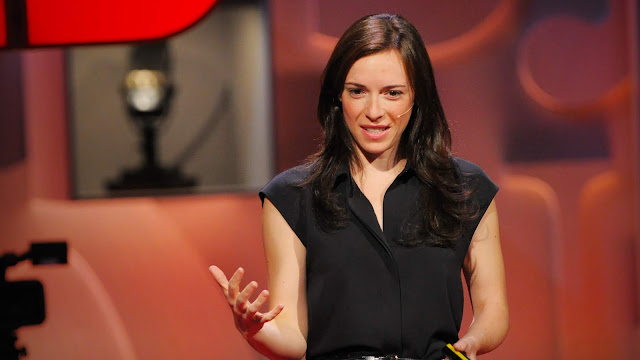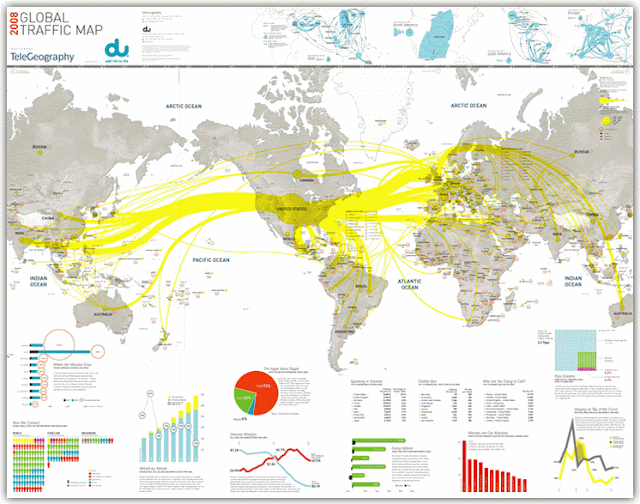Jessica Jackley, co-founder of Kiva
Jessica Jackley, co-founder of Kiva and professor at the Marshall School of Business at USC, recently visited Poly’s upper school to discuss her path to social entrepreneurship. A parent of two Poly lower-schoolers, Jackley began the event by introducing herself, her two children, and her husband. She stressed something with which many Poly students and parents can likely relate: family, despite all of our various obligations and activities, comes first. Throughout the event, Jackley also emphasized the value and importance of each of our individual stories, which I greatly appreciated. To open her TedTalk from 2010, Jackley said, “The stories we tell about each other matter very much; the stories we tell ourselves about our own lives matter; and most of all, I think the way we participate in each other’s stories is of deep importance.” This investment in the experiences of others seems to have guided Jackley’s pioneering work in the microlending space.
Jackley also detailed the evolution of her perspective on finance, entrepreneurship, and, broadly, the capital-oriented world in which we live. She explained how, early on in her college and post-graduate years, she felt compelled to effect positive change but did not see the world of finance as the avenue through which to do so. Indeed, Jackley remarked that she often thought of these two forces—the cold, market-driven economy and the desire to do good—as mutually exclusive, two opposites naturally pitted against the other. And yet, her career is now based very much in leveraging capital to do good. This shift, from distancing herself from the market to embracing capital-based strategies, happened after attending an event with Dr. Muhammad Yunus, a recipient of the Nobel Peace Prize and the founder of Grameen Bank, a microfinance organization. His work inspired her to begin her career in the sharing economy, and she has never looked back. I had the opportunity to ask a question—about how her beliefs about the role of the state have changed with the evolution described above—at the end of the event. She said that she firmly believed in the capacity for change to be achieved at all levels of government, but her experience with government in social entrepreneurship was defined by actively avoiding intervention. She expounded on this relationship, explaining her chief desire was to do good, and so she would not allow herself to get sidetracked by regulations and the like. She did, however, insist that we students in the room could certainly find ways to act altruistically in government and outside of it. Her message of support and confidence truly touched me, and Jackley’s grit, innovation, and empathy will stick with me for the rest of my academic journey and, surely, my life.
Jackley also detailed the evolution of her perspective on finance, entrepreneurship, and, broadly, the capital-oriented world in which we live. She explained how, early on in her college and post-graduate years, she felt compelled to effect positive change but did not see the world of finance as the avenue through which to do so. Indeed, Jackley remarked that she often thought of these two forces—the cold, market-driven economy and the desire to do good—as mutually exclusive, two opposites naturally pitted against the other. And yet, her career is now based very much in leveraging capital to do good. This shift, from distancing herself from the market to embracing capital-based strategies, happened after attending an event with Dr. Muhammad Yunus, a recipient of the Nobel Peace Prize and the founder of Grameen Bank, a microfinance organization. His work inspired her to begin her career in the sharing economy, and she has never looked back. I had the opportunity to ask a question—about how her beliefs about the role of the state have changed with the evolution described above—at the end of the event. She said that she firmly believed in the capacity for change to be achieved at all levels of government, but her experience with government in social entrepreneurship was defined by actively avoiding intervention. She expounded on this relationship, explaining her chief desire was to do good, and so she would not allow herself to get sidetracked by regulations and the like. She did, however, insist that we students in the room could certainly find ways to act altruistically in government and outside of it. Her message of support and confidence truly touched me, and Jackley’s grit, innovation, and empathy will stick with me for the rest of my academic journey and, surely, my life.



Comments
Post a Comment